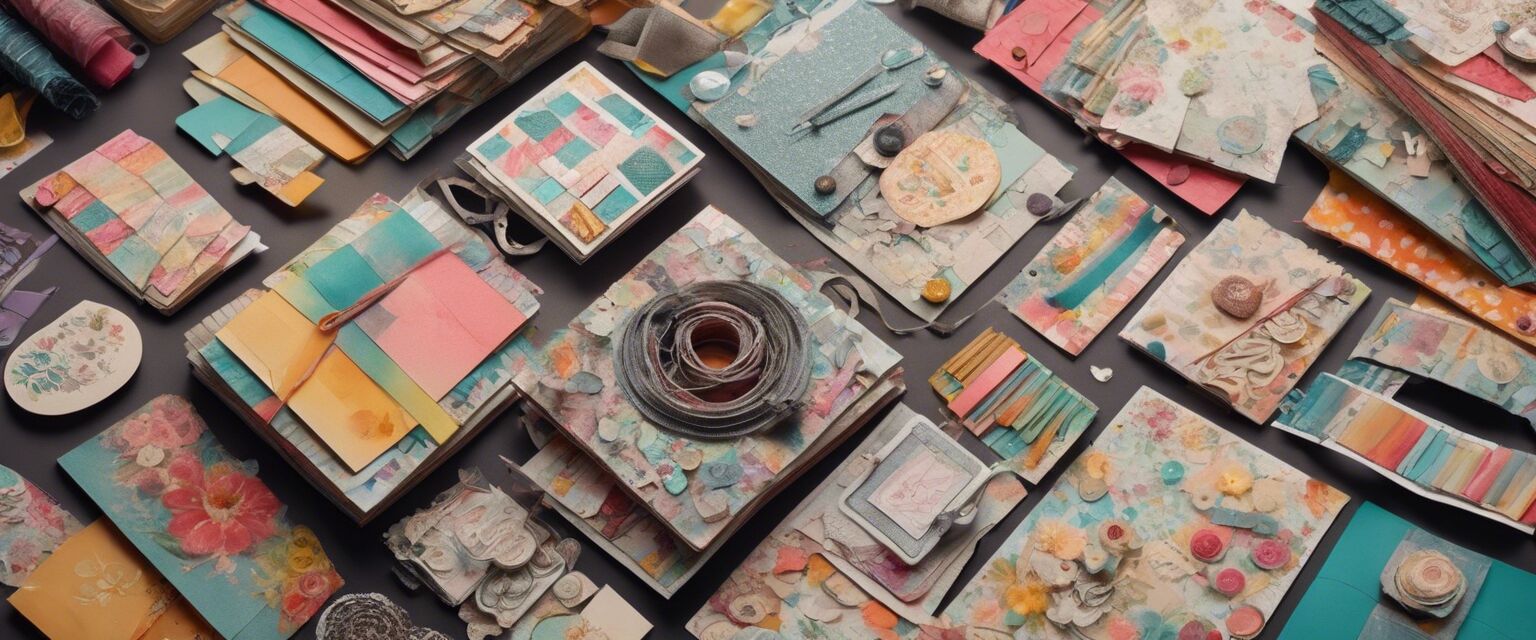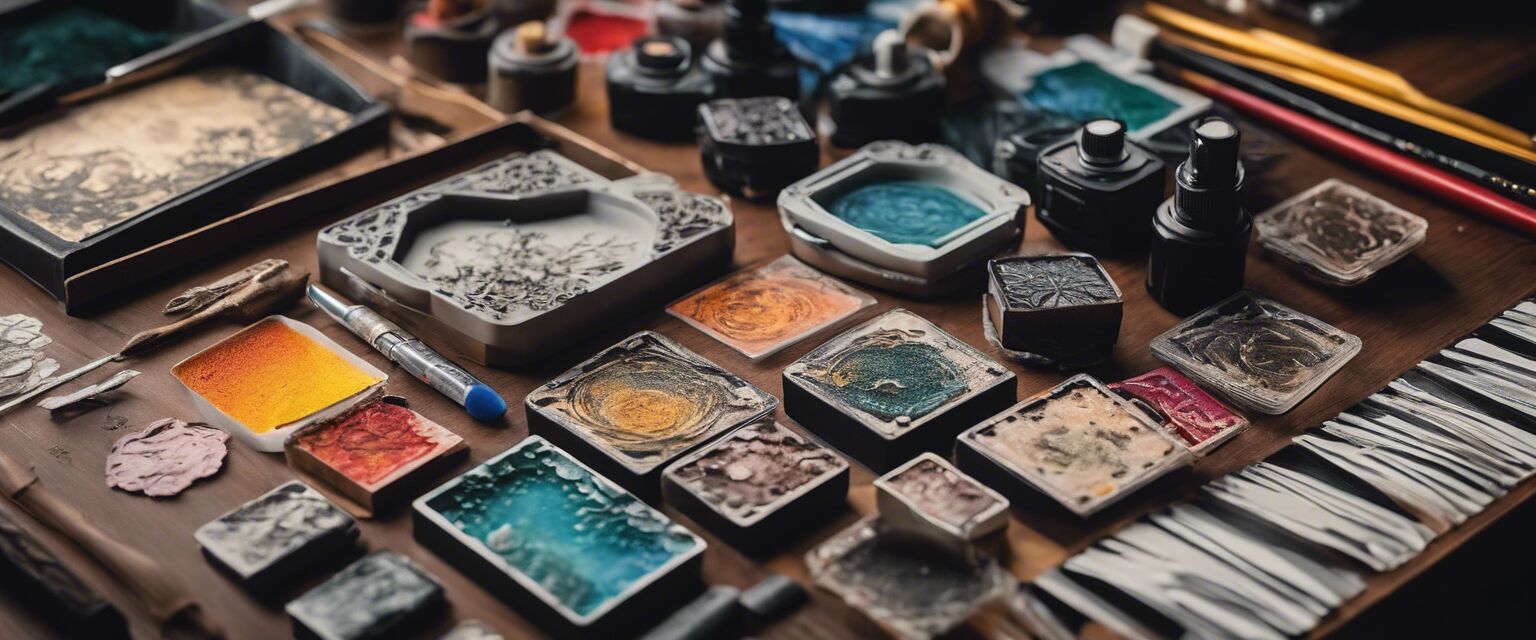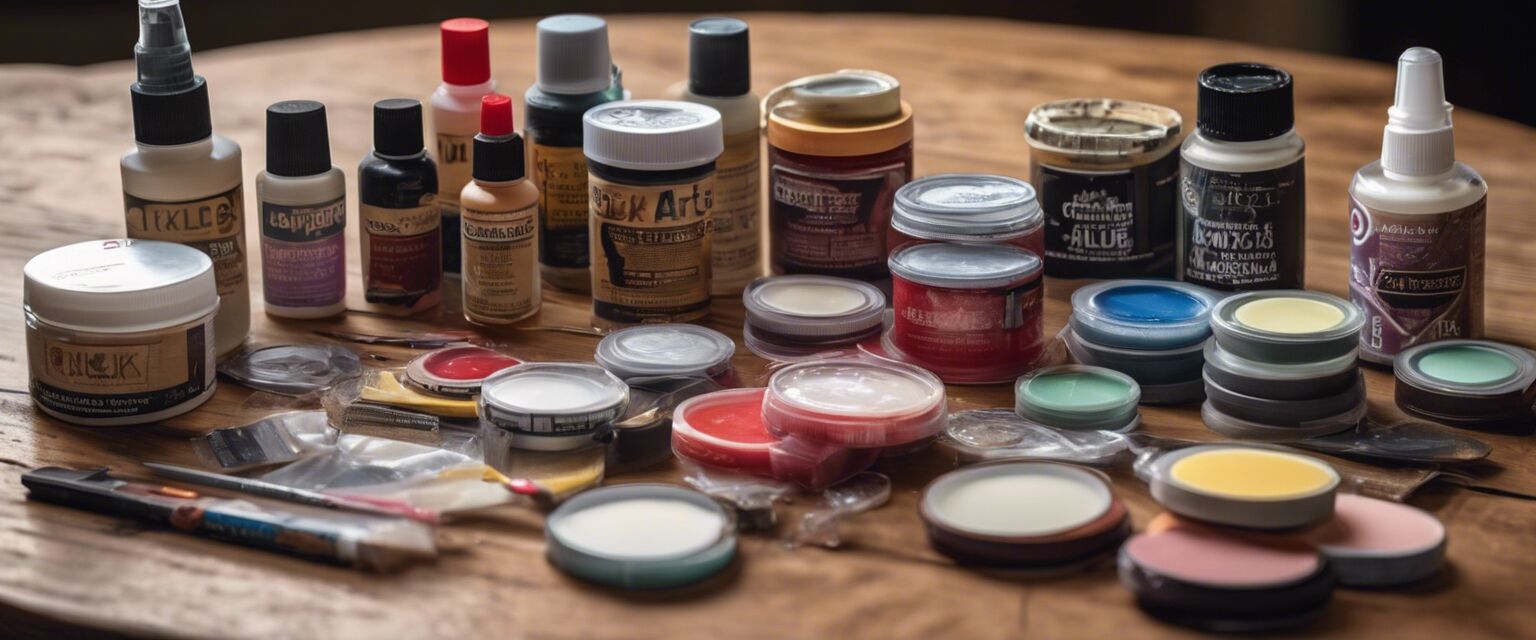
Paper Types
Welcome to our in-depth guide about various types of paper that are ideal for scrapbooking projects. Choosing the right paper can significantly enhance the aesthetic appeal of your scrapbook, allowing you to express your creativity in unique ways. This article explores different paper types you can use and the best applications for each.
Key Takeaways
- Different paper types serve different purposes in scrapbooking.
- Consider factors like weight, texture, and finish when selecting paper.
- Using a variety of paper types can enhance your scrapbook's visual appeal.
- Testing paper types before committing to a project can save time and resources.
Types of Paper for Scrapbooking
Here are the most popular types of paper used in scrapbooking:
| Paper Type | Description | Best Uses |
|---|---|---|
| Cardstock | A heavy, stiff paper that comes in various colors and textures. | Base pages, mats, and embellishments. |
| Patterned Paper | Paper printed with patterns, designs, or images. | Backgrounds, layering, and accents. |
| Photo Paper | High-quality paper designed for printing photos. | Including photographs and prints in scrapbooks. |
| Vellum | Translucent paper that adds a unique layer effect. | Overlay, journaling, and accents. |
| Textured Paper | Paper with a distinct surface that adds dimension. | As a background or feature piece. |
Choosing the Right Paper
When selecting paper for your scrapbooking projects, consider the following factors:
- Weight: Heavier papers can hold more embellishments, while lighter papers work better for layering.
- Texture: Textured papers can add depth and interest to your designs.
- Color: Ensure colors complement each other and enhance your theme.
Common Paper Weights
| Weight | Characteristics |
|---|---|
| 20 lb - 24 lb | Lightweight, ideal for layering and scrapbooking. |
| 60 lb - 80 lb | Standard weight for card-making and scrapbooking. |
| 80 lb - 110 lb | Heavyweight, provides durability and sturdiness. |
Popular Paper Products
Some popular categories of paper used by scrapbookers include:
- Decorative Papers - Great for visual interest.
- Photo Printing Options - Ensures your photos look great.
- Stickers & Embellishments - Perfect for personal touches.
- Scrapbooking Tools - Essential for any project.
- Storage Solutions - Keep your supplies organized.
Tips for Scrapbooking with Paper
Beginner Tips
- Start with a plan by sketching out your page layout.
- Experiment with different paper types to see what you enjoy the most.
- Donât shy away from mixing different textures and patterns.
- Keep your favorite papers in a convenient spot to inspire creativity.
- Practice layering with paper to make your designs pop.
Conclusion
Understanding the different types of paper available will help you make informed choices in your scrapbooking projects. Whether you're layering, creating backgrounds, or adding photos, using the right paper can elevate your scrapbook's quality. Remember to test various combinations of paper types and let your creativity flourish!
Pros
- Wide variety of options to suit different styles.
- High-quality papers enhance photo presentations.
- Textured papers can add a unique element.
- Customizable and can be tailored to personal taste.
Cons
- Some paper types may be more expensive.
- Can require additional tools for best results.
- Knowing which type to choose can be overwhelming for beginners.
Frequently Asked Questions
What weight of paper is best for scrapbooking?
Most scrapbookers prefer using a weight between 60 lb - 80 lb for general use, as it provides good sturdiness without being too heavy.
Can I use regular printer paper for scrapbooking?
While you can use regular printer paper, it's best to use higher-quality papers for better durability and aesthetics in your final design.
How do I store my scrapbook paper?
Store your scrapbook paper flat or upright in a cool, dry place, ideally within an archive-quality storage box to prevent bending and fading.








